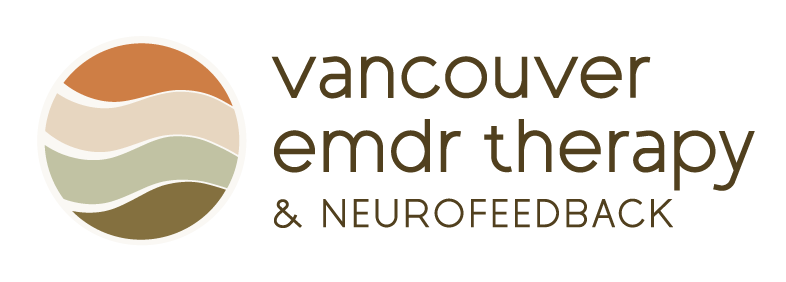 Journaling is a great way to get to know yourself, your inner world and to be able to explore your thoughts and feelings. If you have ever tried to meditate you have probably experienced what is called the “monkey brain.” No doubt you learned quickly that your mind is constantly thinking, problem solving and creating narratives about the world around you. By regularly recording your thoughts you will gain insight into your thoughts, behaviors and moods. Keeping a journal has many positive benefits. Journaling is therapeutic and can help with personal growth and development. Journaling may not solve the problem, but it does free up mental space and allow you to track symptoms, understand triggers and see patterns in your life.
Journaling is a great way to get to know yourself, your inner world and to be able to explore your thoughts and feelings. If you have ever tried to meditate you have probably experienced what is called the “monkey brain.” No doubt you learned quickly that your mind is constantly thinking, problem solving and creating narratives about the world around you. By regularly recording your thoughts you will gain insight into your thoughts, behaviors and moods. Keeping a journal has many positive benefits. Journaling is therapeutic and can help with personal growth and development. Journaling may not solve the problem, but it does free up mental space and allow you to track symptoms, understand triggers and see patterns in your life.
Writing lowers our stress levels and our emotional reactivity by naming what is going on and making meaning of it. It slows our minds down so that we can organize our thoughts and thinking about events in our life. One might ask, “How can journaling possibly help me? “ Journaling is supported through brain based science. With negative events our brains will stay stuck and loop around the experience looking at the details of what happened. But with writing we can allow our brains to process the experience more effectively and come back out of the stuck, anxious feeling in a quicker way. Writing improves sleep, and increase self esteem. Journaling reduce stress and emotional activation. This helps us to better connect with others and to be more engaged in a playful, joyful and creative way. In essence it helps us to be more available. Journaling is a self care practice and will help you to heal, create and thrive.
How do you journal?
Journaling doesn’t always have to contain sentences or words and could be as simple as using mixed media such as drawing pictures, using symbols and colors and cutting and pasting pictures from magazines. Sometimes words are not enough to express how we are feeling or we can’t find the right word to express it so using alternate ways of communicating through art can help.
Before journaling, find a notebook and a favorite pen. Some people prefer to have more than one notebook, reserving one to use as a gratitude journal, and the other to include all other thoughts and feelings. You may want to think about where you will keep your journal between writings. Some people prefer to keep it in a private location, whereas others don’t feel this need. What’s most important is that your words are only accessible to those who you wish to read them. What do you journal? There is no wrong way to journal! You can’t go wrong when you journal. Below are some suggestions for helping you to get started.
Journal to heal-
- For five to ten minutes just start writing in a “stream of consciousness.”Don’t edit your thoughts or feelings and don’t correct your grammar. Don’t censor your thoughts.
- Start a dialogue with your inner child.
- Start writing about where you are in your life at this moment.
- Write in an unstructured way about your inner emotional state at this moment.
- Is there something you are struggling with or an event that’s disturbing you, write about it in the third person. This will give you distance and provide a new perspective. Write down what you learned about yourself.
- Write about your current situation as if you were a year out form the situation as if you are looking back. What would be different than what you are experiencing right now.
- Are you sad, irritable or worried? If so write form that part of yourself. What would that part like to say? What would that part like for you to know? Give that part of yourself a voice.
- Do a character sketch of that part. What does it look like, what does it believe and what does it want us to know?
- Respond to the part from your wise self, calm self or best self. Like a family give every part of you a chance to talk and share. What is their positive intention for us even if it is not always apparent.
- Write an unsent letter to someone who has hurt you. Express yourself without holding back. What do you feel about this person?
Journal to create-
- Keep a log of your favorite songs…especially the ones that inspire you.
- Describe your living situation, your work, and your relationships. Are you right where you want to be? Are there ways that you want to be more creative in your life? At home, at work and in your relationships?
- Start a journal of self-portraits. You can take pictures, draw colors or shapes or collage images. Learn to love and accept yourself just the way you are today.
- Keep a nature diary to connect with the natural world. The world we live in is a magical and mysterious place. Record the things you notice about the sky, the weather, and the seasons.
- Develop your intuition. Write down questions or concerns then take a deep breath and listen for a response from your Higher Self. Let yourself write automatically. If you don’t get an answer right away, look for signs during the day.
Journal to thrive–
- Maintain a log of successes.
- Keep a gratitude journal.
- There are 8 Self qualities. They consist of: Calm, Compassion, Curiosity, Courage, Creativity, Connection, Confidence and Clarity. Write about when you are the most in touch with theses parts of yourself.
- What are your intentions for this year, what is going right so far? What hasn’t worked so well and what would you like to correct?
- If there’s something you are struggling with or an event that’s disturbing you, write about it in the third person. This will give you distance and provide a new perspective. Write down what you learned about yourself.
- Keep a list of uplifting quotes.
 In conclusion, journaling shouldn’t be looked at something that you have to do. You should not force yourself to do it. Journaling can come and go in your life or can be practiced daily if you choose. You can benefit from journaling even if it is only a few minutes at a time. Journaling helps to process our emotions. The more you journal the more you may notice changes in your attitude and perceptions in life. Our nervous systems are wired to identify what went wrong in our day. Our brains are “Velcro for the negative” and “Teflon for positive.” This alert nervous system keeps our emotions heightened. One way of using journaling is to intentionally focus our thoughts on the positive. This will help to strengthen the brain connections and increase positive emotions and states in our life. Journaling is a powerful and effective tool for processing the negative and installing the positive so that you can heal, create and thrive.
In conclusion, journaling shouldn’t be looked at something that you have to do. You should not force yourself to do it. Journaling can come and go in your life or can be practiced daily if you choose. You can benefit from journaling even if it is only a few minutes at a time. Journaling helps to process our emotions. The more you journal the more you may notice changes in your attitude and perceptions in life. Our nervous systems are wired to identify what went wrong in our day. Our brains are “Velcro for the negative” and “Teflon for positive.” This alert nervous system keeps our emotions heightened. One way of using journaling is to intentionally focus our thoughts on the positive. This will help to strengthen the brain connections and increase positive emotions and states in our life. Journaling is a powerful and effective tool for processing the negative and installing the positive so that you can heal, create and thrive.
Happy journaling to you!
Lemecia Lindsey specializes in helping adults heal from PTSD, trauma and other life stressors. To learn more about her work please visit: www.vancouveremdrtherapy.com




